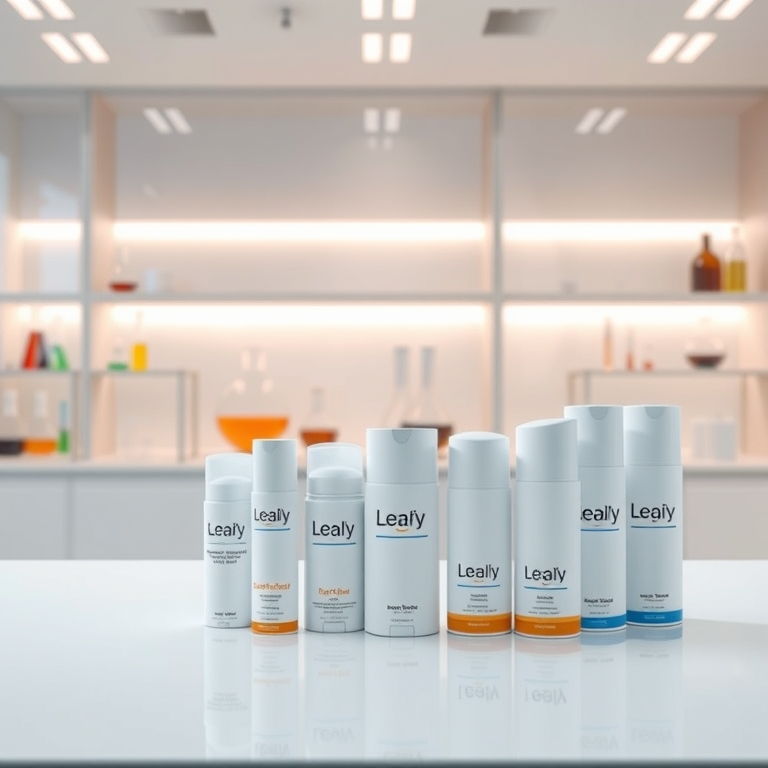In a surprising and concerning move, the U.S. Food and Drug Administration (FDA) has issued a recall for several popular deodorant brands after discovering potentially harmful substances within their formulations. This action has sent ripples through both the personal care industry and among consumers nationwide, raising questions about product safety, regulatory oversight, and the broader implications for brands that have long been trusted by millions.
The recall, which was announced in an official FDA statement earlier this week, affects a range of widely-used deodorant products, including those marketed under major household names. The substances in question, which have been identified as volatile organic compounds (VOCs) and other chemicals potentially linked to adverse health effects, were detected during routine and targeted safety testing. According to the FDA, these compounds can pose risks when absorbed through the skin over prolonged periods, especially considering deodorants are typically applied daily.
While the FDA has stressed that the recall is precautionary, the agency’s decision underscores the importance of vigilance in product safety and the challenges that come with monitoring an ever-evolving market of personal care items. The recall also highlights the complex relationship between regulatory agencies and the industries they oversee, as well as the critical role of independent research in ensuring consumer safety.
For the brands involved, the recall represents a significant hurdle, both in terms of immediate business impact and long-term reputational damage. These companies now face the daunting task of not only complying with the recall but also restoring consumer trust in a competitive market where brand loyalty is paramount. The financial implications are considerable, with potential losses stemming from halted production, unsold inventory, and the costs associated with re-formulating products to meet safety standards. Moreover, these companies must navigate the delicate process of communicating with consumers, many of whom have relied on their products for years without incident.
The recall has sparked a broader discussion about the regulatory frameworks governing personal care products in the United States. Unlike pharmaceuticals, personal care items such as deodorants are not subject to pre-market approval by the FDA. Instead, the responsibility for ensuring safety falls largely on the manufacturers themselves, with the FDA stepping in primarily when issues arise. This approach, while allowing for innovation and market agility, also places a significant burden on companies to maintain rigorous internal testing protocols and transparency.
In response to the recall, consumer advocacy groups have called for stronger regulatory measures, arguing that the current system leaves too much room for error and puts consumers at risk. They are urging the FDA to consider more stringent oversight and to implement mandatory safety assessments for all personal care products before they reach the market. Such measures, they argue, would help prevent similar situations in the future and assure consumers that the products they use daily are safe.
Meanwhile, industry insiders are emphasizing the importance of innovation and responsibility within the sector. Many companies are now turning to advanced technologies and formulations, such as natural and organic ingredients, to differentiate themselves and meet growing consumer demand for safer, more sustainable products. This trend reflects a broader shift in consumer preferences, as more individuals become conscious of the ingredients in their personal care routines and seek out products that align with their health and environmental values.
For consumers, the recall serves as a reminder of the importance of staying informed about the products they use. While the FDA has assured the public that the risk associated with the recalled deodorants is relatively low, it has also advised consumers to discontinue use of the affected products and to seek alternatives. Many consumers have taken to social media to express their concerns, share experiences, and seek recommendations for safe replacements, highlighting the role of community and shared knowledge in navigating such situations.
As the dust settles, the deodorant recall is likely to have lasting implications for the personal care industry. Companies will need to reevaluate their safety protocols, supply chain practices, and product formulations, while also engaging with consumers in new and meaningful ways. For regulators, the incident may prompt a reevaluation of current oversight practices and potentially lead to reforms that bolster consumer protection.
Ultimately, the recall serves as a critical reminder of the delicate balance between innovation and safety in the personal care industry. As consumers increasingly seek out products that are not only effective but also safe and environmentally responsible, companies will need to rise to the challenge, prioritizing transparency and trust in every aspect of their operations. The FDA’s recall may be a wake-up call, but it also presents an opportunity for the industry to reflect, adapt, and evolve in a way that benefits both businesses and consumers alike.

Leave a Reply